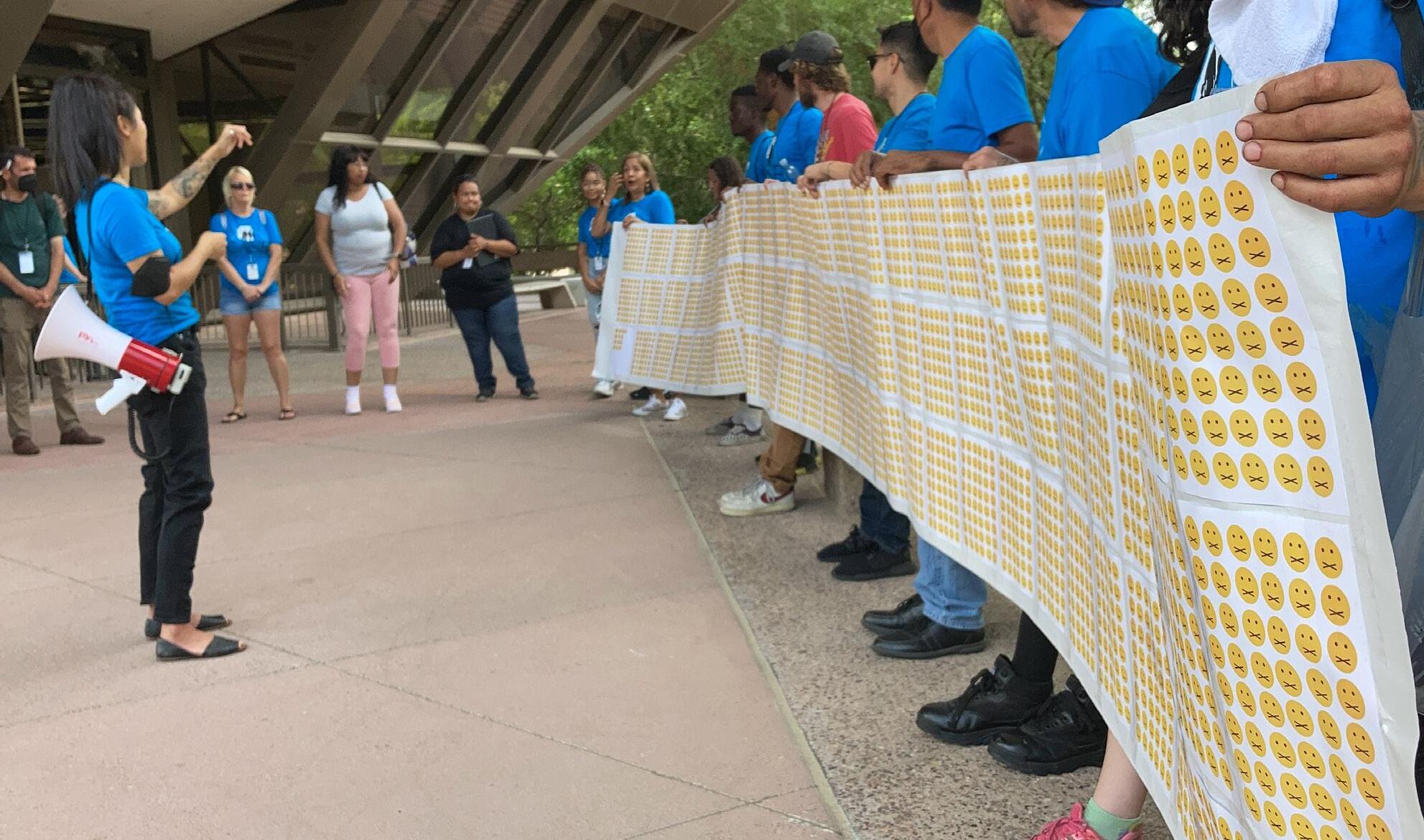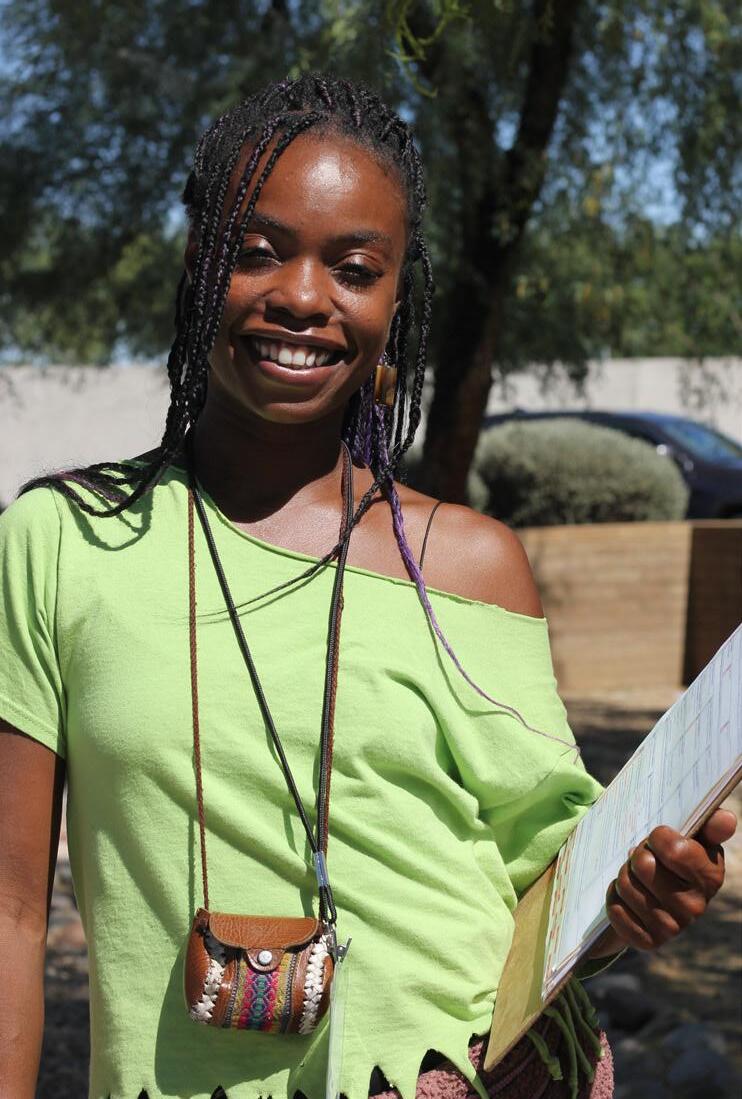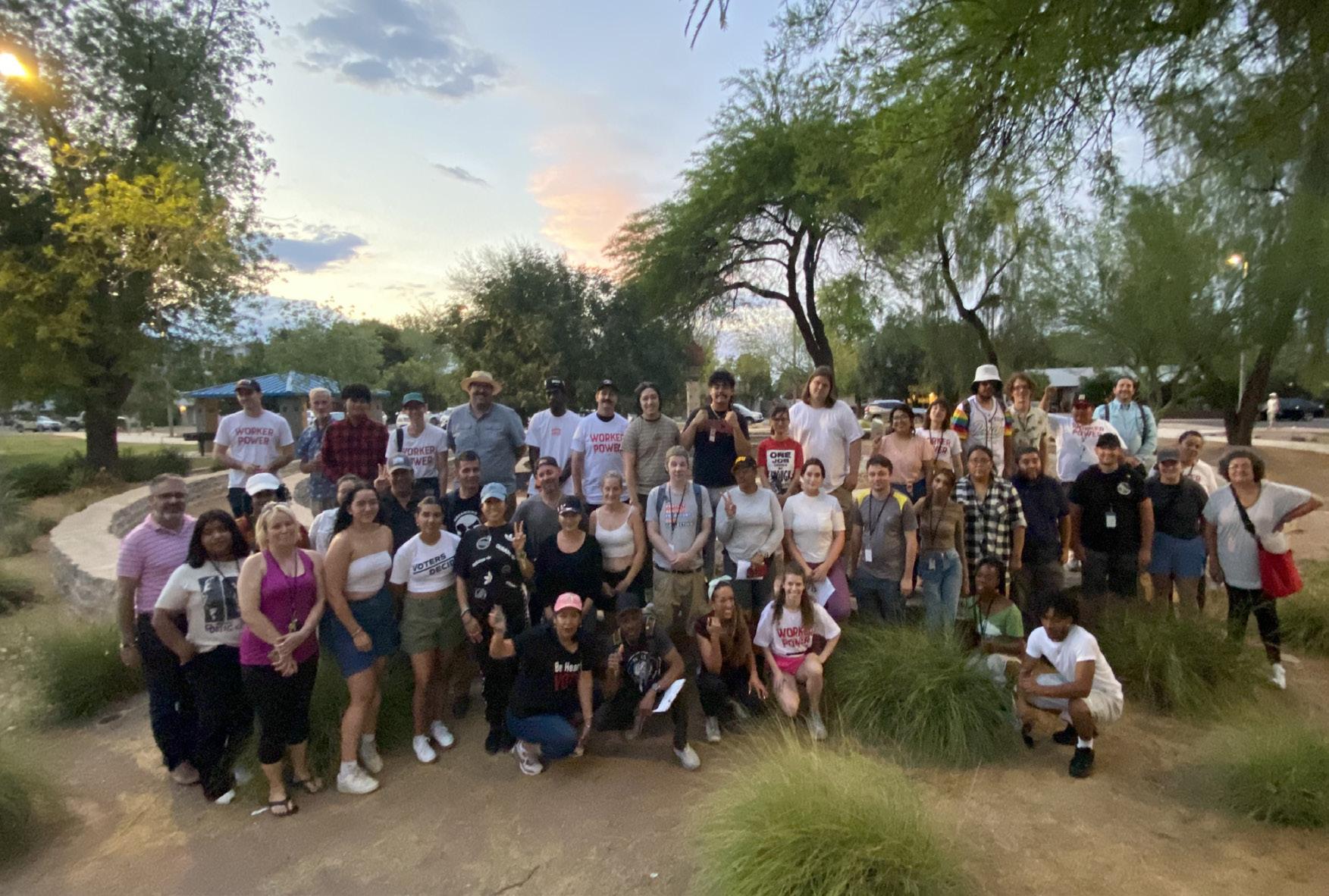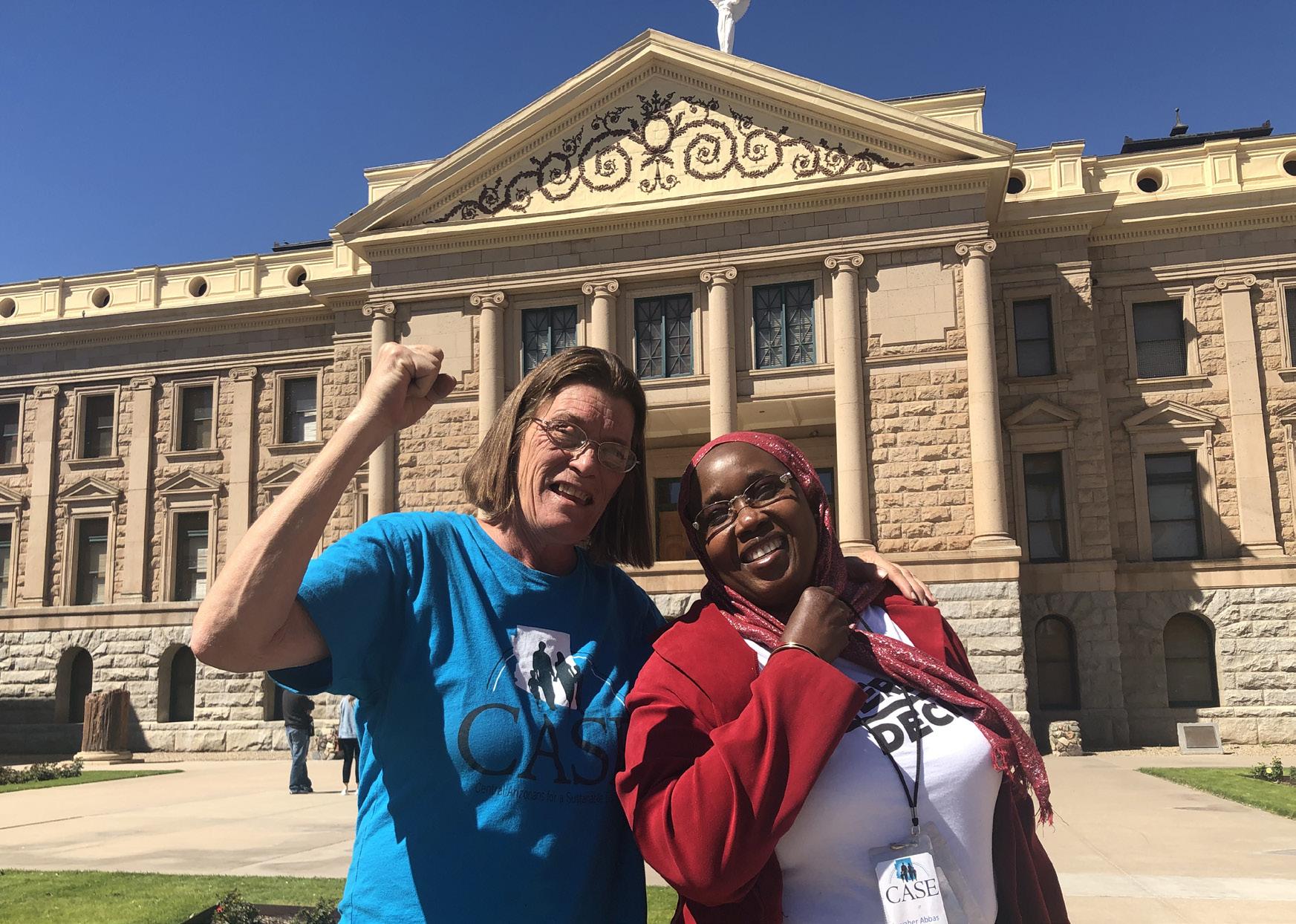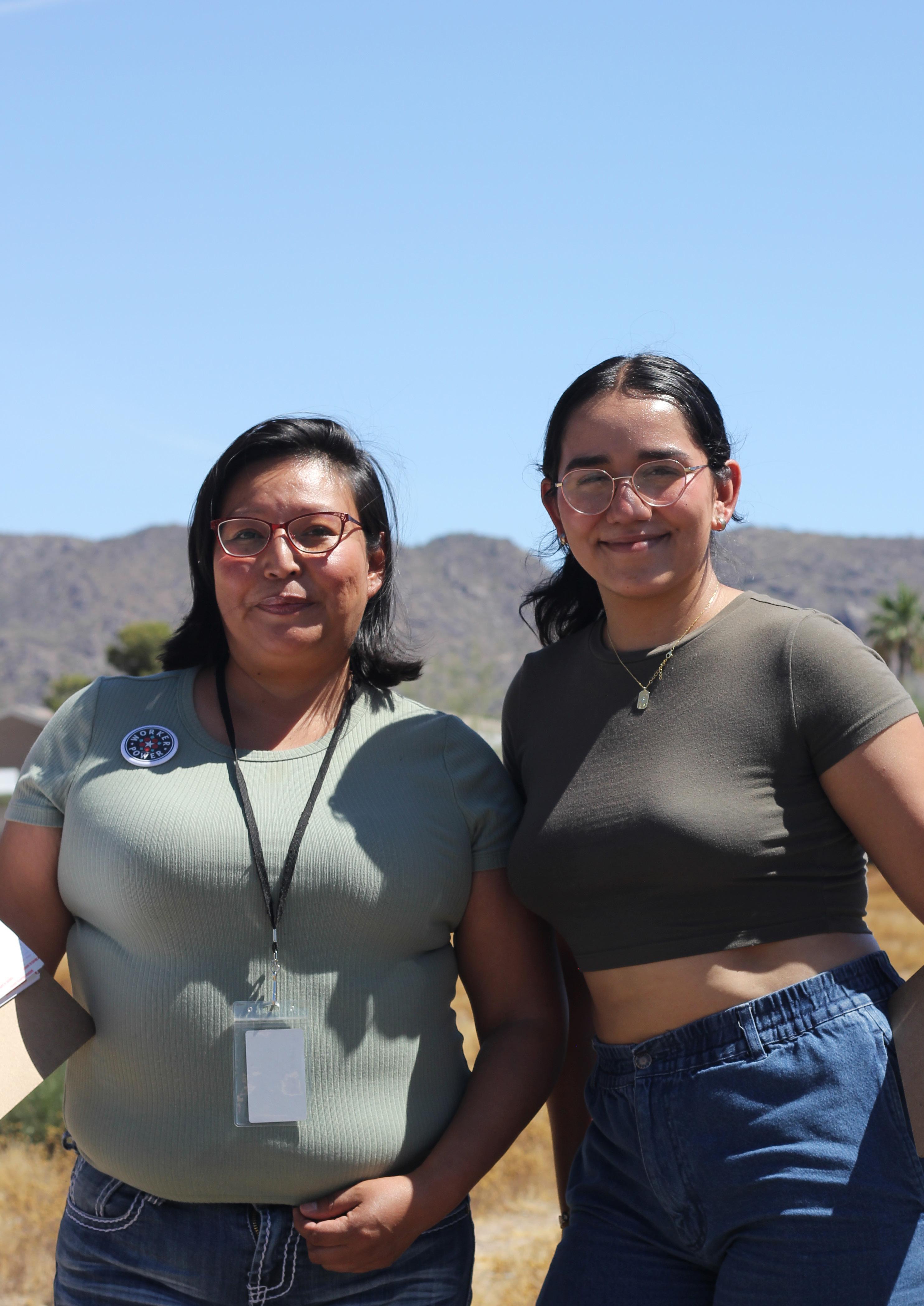2022 Annual Report







For over fifteen years now, Worker Power Institute (formerly CASE) has led the fight for economic justice and a better standard of living for working families by conducting advocacy campaigns for better jobs, equitable economic development, and increasing civic participation.
After the passage of the anti-immigrant law SB 1070 in 2010, we were at the forefront of the fight for immigrants’ rights. Over the last five years, we have registered more than 60,000 people to vote and have participated in democracy defense at all levels of government. We have fought for fair redistricting and against voter suppression, urging elected public officials to preserve our democracy. Today, our mission to improve working people’s living and working conditions continues to guide our work.
2022 was one of our greatest years yet. We registered thousands of voters; we ran our first Worker Power Campaign school to train the next generation of labor and civil rights movement leaders; and we won a voice for working people in the economic development process of one of Arizona’s most important cities.
Looking ahead, our work is not done. While national homelessness rates rose by 1% between 2020 and 2022, in Arizona - due to a lack of affordable housing and a preponderance of low wage jobs - it grew by 23%. Clearly, we need to do more for the working Arizonians who are just a paycheck away from losing their homes. We need economic policies that favor working people, not just those at the top. We need more elected officials who will advocate for low-wage earners. We need to protect the voice of ordinary working people by preventing voter suppression on every level. Our fight isn’t easy or quick, but with your support, we will continue scoring wins for working families.
We offer our deep gratitude and thanks for your investment in our work. We hope you will enjoy reading about the impact we have made together in 2022, and we look forward to a continued partnership in the fight for a more just economy and a stronger democracy in Arizona and the United States.

Thank you for your support,
Beatriz Topete Board President Brendan Walsh Executive Director Worker Power Institute 2022Worker Power Institute is a multi-racial, multigenerational organization dedicated to achieving economic, social, and racial justice through community education, direct services, civic engagement, and policy advocacy.

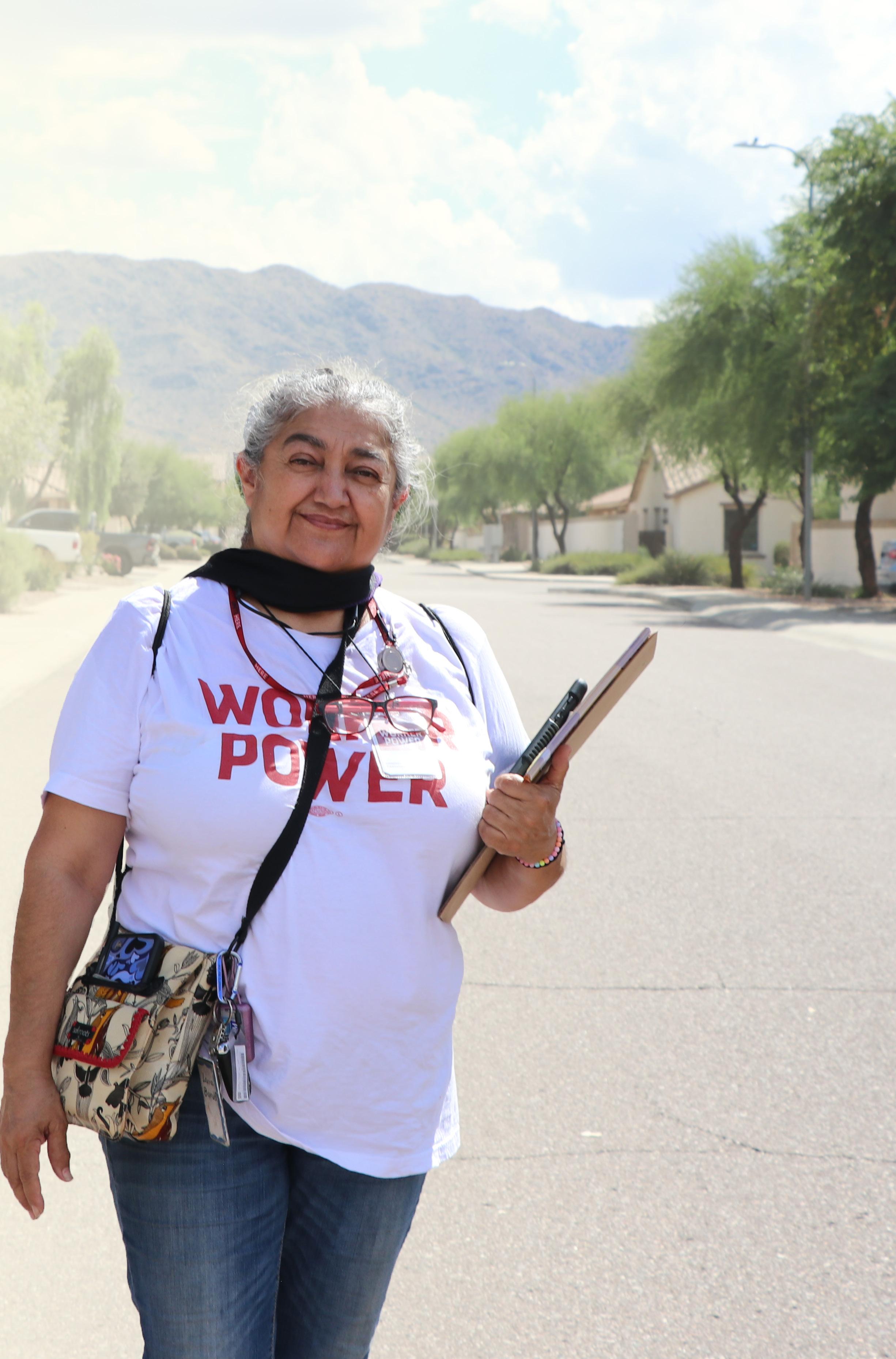
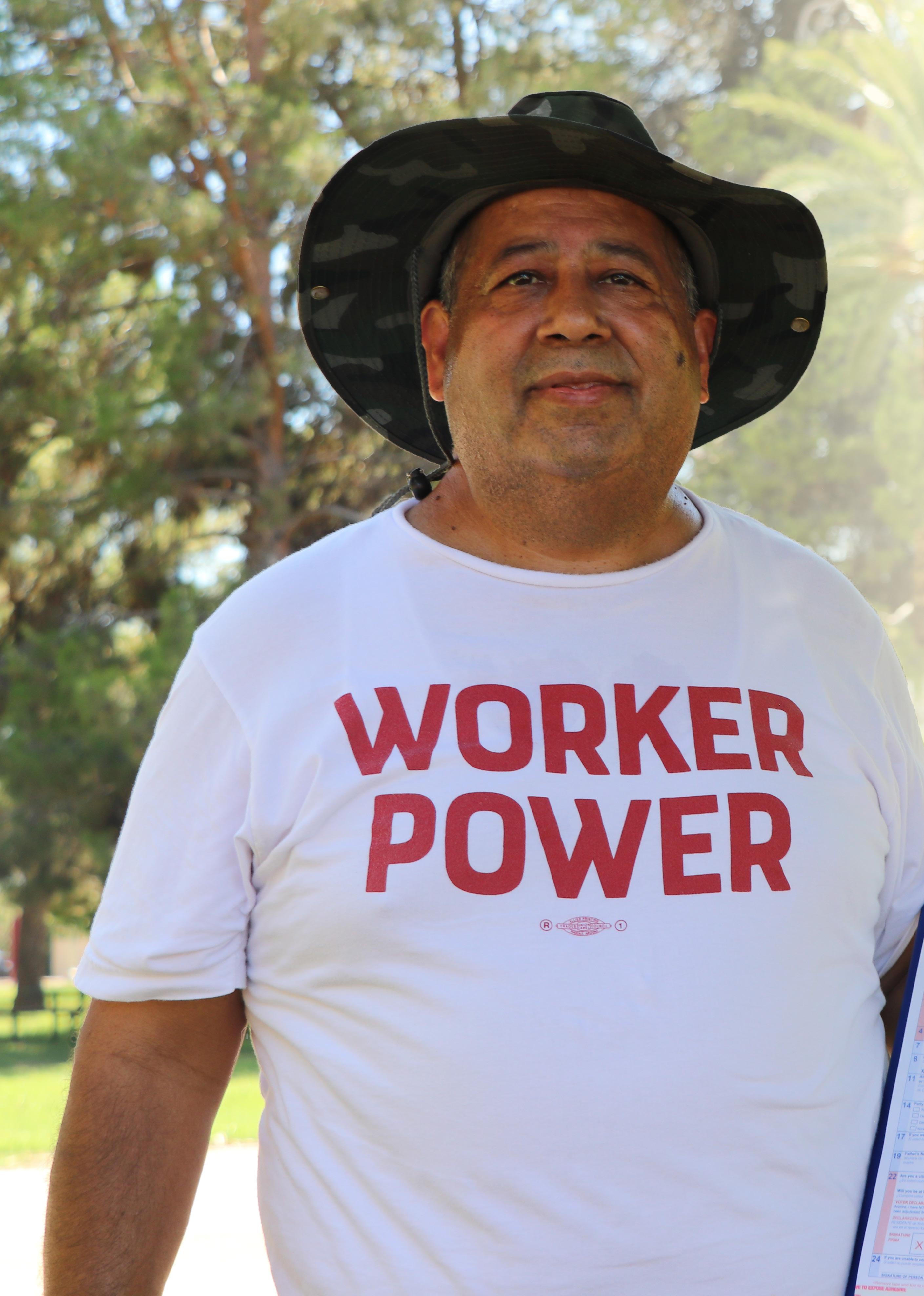

Since 2008, Worker Power Institute has worked to increase voter participation among young people and voters of color in the interest of creating a government that will improve the lives of working families in Arizona.
Since 2012, Worker Power has enrolled over 100,000 voters into Arizona’s permanent vote-by-mail list, many of them people of color and youth voters. That work has significantly increased voter participation among underrepresented communities in federal, state, and local elections.
In 2022, our voter registration team made over 250,000 voter registration attempts and collected over 11,800 applications – nearly all applicants opting into Arizona’s vote-by-mail list. Much of our success came in registering students at community college campuses across greater Phoenix and neighborhoods with historically underrepresented communities.

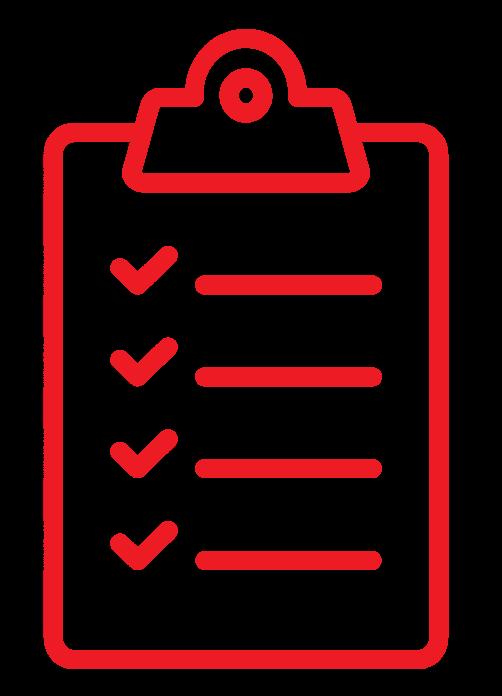
2,500 voter registration canvassing shifts
250,000+ voter registration attempts in the Phoenix metro area
11,800 voters registered
90%+ of voters we registered, opted into the PEVL (Permanent Early Voting List)

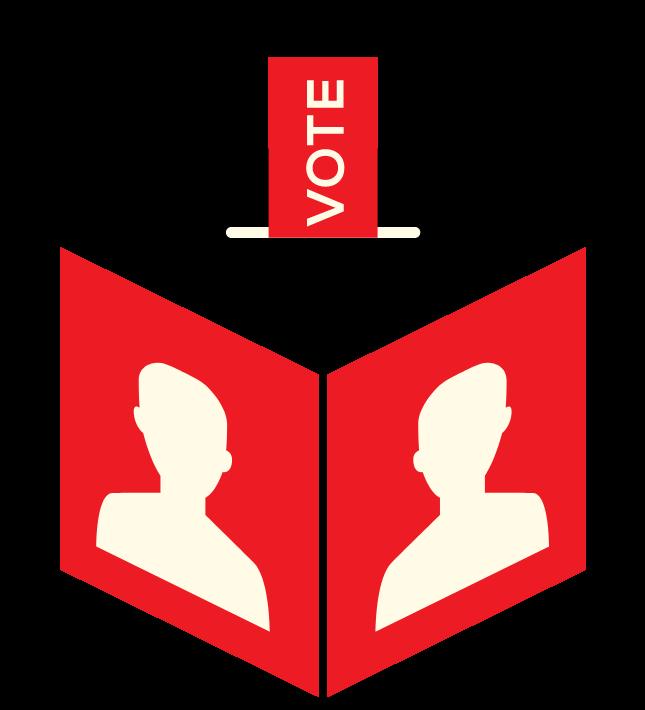
Jawaher Abbas grew up with fourteen brothers and sisters in the city of Nyla, the capital of South Darfur in Sudan. Her family was not wealthy, but people cared about each other, and she remembers the years before the war broke out as some of the happiest in her life.
Jawaher’s neighborhood did not always have electricity, and she often studied under the light of the oil lamp, but she loved school, especially geography. When Jawaher’s teacher dared students to name the capitals of the world, she’d always be the first one to run toward the classroom’s map and point with her finger. But all this was cut short in 2003 when war broke out in her region between rebel forces and the Janjaweed, a Sudanese Arab militia who, along with Sudanese government forces, embarked on an ethnic cleansing campaign against non-Arabs in Sudan.
As the civilian death toll rose, Jawaher fled the country for Egypt and then the United States. But Jawaher’s first few years in the States were not easy. As a wheelchair van driver, Jawaher got paid a minimum wage, and while she often worked 14-18-hour days, she would only get paid for eight. In addition, she had to do so much heavy lifting that she suffered two miscarriages. After she suffered her third, she knew she had to take a break and recover her health.

During her recovery, Jawaher decided to enroll in a local community college. She had postponed her education for too long and knew that if she waited for the perfect time to register, that day would never come. One day, while walking to class, Jawaher was stopped by Naomi, Worker Power’s canvasser, who urged her to register to vote. Jawaher did not know how to answer. She understood Naomi’s words but did not comprehend the concept, so she asked, “What does it mean to register to vote?”
In Sudan, one could get killed for registering people to vote, let alone cast their vote. Jawaher never had a chance to vote before. The idea of voting and that one can help others cast their vote appealed to her so much that she wanted to do exactly what Naomi did – help people register to vote and voice their choice.
Since 2018, as part of Worker Power’s field organizing team, Jawaher has registered hundreds of people to vote. Many of them have never voted in their life. She tells us, “When I knock on someone’s door, I know I have an important role to play. I am there to persuade them that they are important enough, that they matter, and that their vote matters. When you don’t vote, you lose your democracy, and democracy is too precious to lose.”
Today, Jawaher keeps a large world map at her home, right behind her desk. She likes getting lost in a spiderweb of distant rivers, roads, and countries on the map. “Looking at the world atlas makes me happy. It reminds me of my childhood, the school I attended, and the fact that we are all connected,” she says.
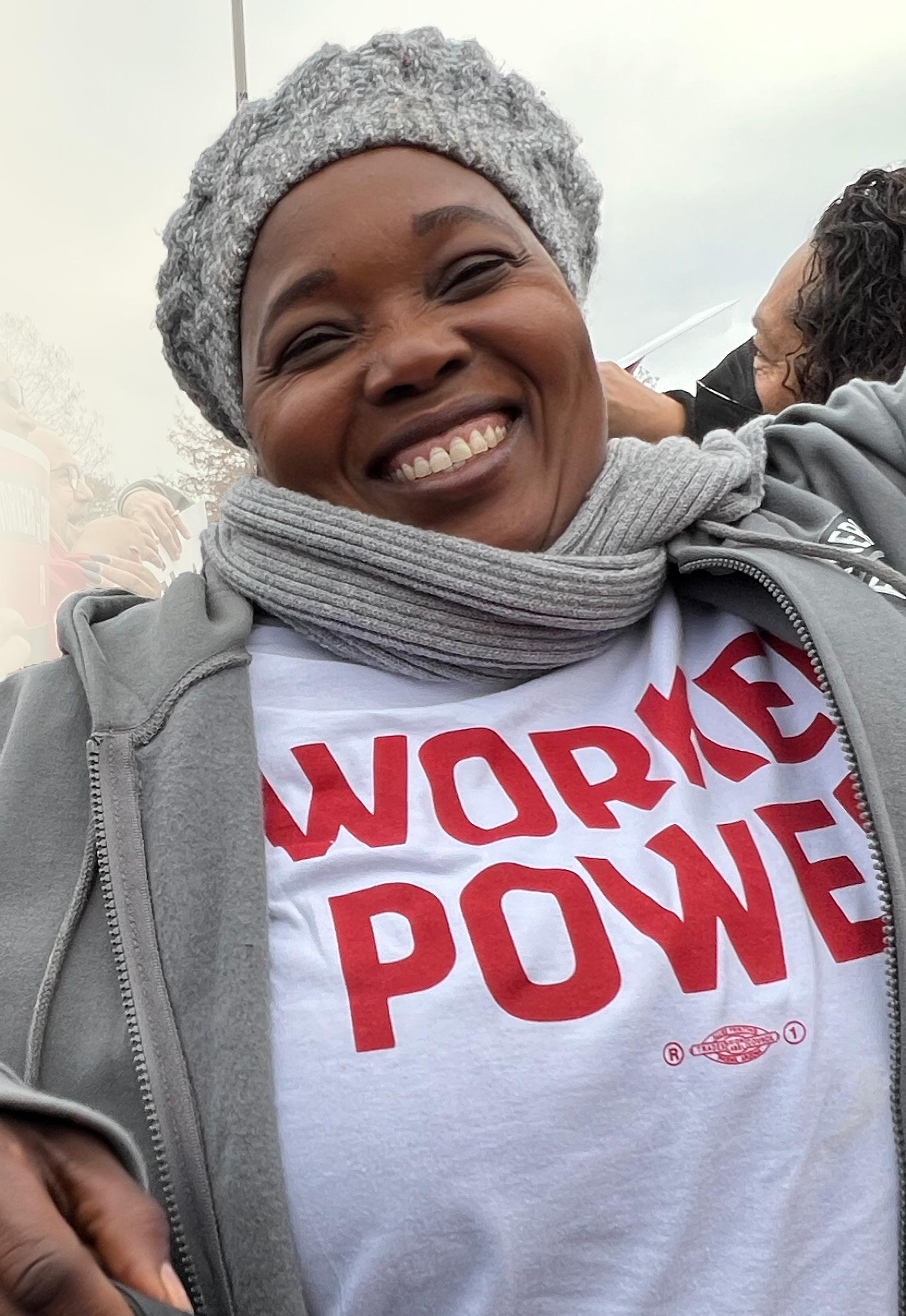

Since 2008, Worker Power has fought to ensure that economic development in Arizona’s most important cities benefits all of its residents. Much of that work has focused on use of a tax abatement called a GPLET (Government Property Lease Excise Tax) to spur luxury commercial developments that, at best, produce little discernible public benefits for regular working residents and, at worst, cause increasing gentrification that exacerbates the intensifying crises of housing affordability in these cities.
Generally, our work on fair economic development is done in Phoenix, the fifth largest city in the United States and the home of 1 in 5 Arizona residents. However, in 2022, our focus turned to the City of Tempe, the home of Arizona State University. Tempe’s City Council was considering multiple GPLET tax abatements to develop the luxury commercial complex, one of which was a $2 billion professional hockey arena and entertainment district that would have received over $650 million in tax abatements.
During 2022, Worker Power organizers mobilized hundreds of people to city council meetings, sent informational texts regarding these developments to more than 50,000 Tempe voters, collected thousands of signatures from Tempe voters in an effort to refer two development agreements to the ballot, and sued the City of Tempe in court in order to make sure these referenda moved forward.
In the end, our 2022 efforts created unprecedented results when on May 16th, 2023, a historic number of voters turned out and defeated the proposed sports and entertainment district development, despite the fact that it had been approved by an outof-touch City Council by a vote of 7-0.
Just weeks after, Nashville, Tennessee’s Metro Council passed a $2.1 billion deal for a professional football stadium with $1.26 billion in public subsidies. As the Nevada Legislature considers a public subsidy of almost $400 million to build a new stadium for MLB’s Athletics franchise, Worker Power’s electoral victory in Tempe is one of historical impact in the battle of working people to impede such acts of corporate welfare.


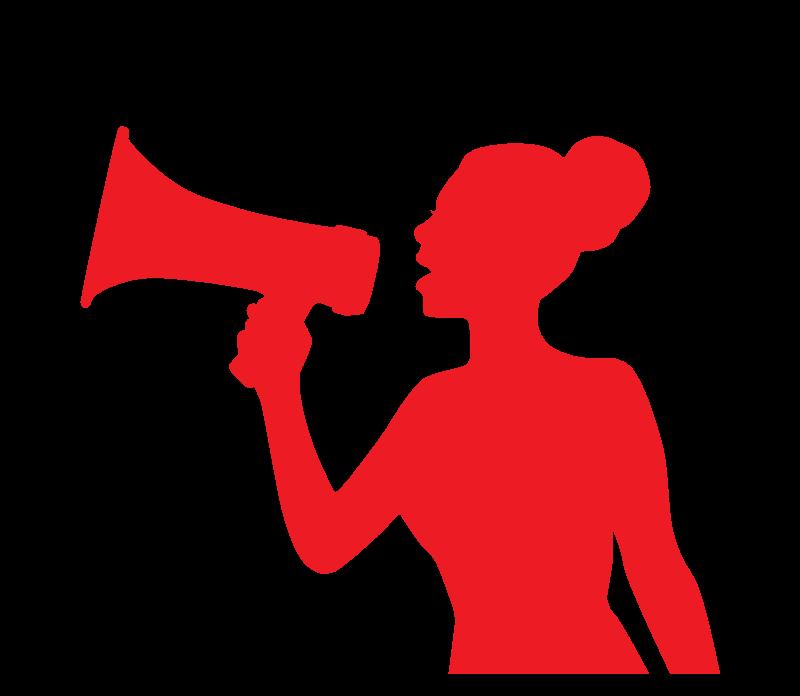
50,000 messages sent about tax abatements for commercial developments

nearly
10,000 signatures collected to refer luxury commercial development agreements in Tempe, Arizona

Mike Martinez, the child of a victim of sex trafficking, ending up in foster care when he was three. When he turned seven, Mike was adopted by a Mexican American family. He had food on the table and clothes on his back, but Mike never felt accepted. At home, his Asian-American background never sat well with his family, and Mike got bullied because he looked different.
From a young age, Mike was in trouble with the law. When he was 12, he wanted a piece of beef jerky, but he had no money. So he stole it. By the age of 16, Mike was sentenced to juvenile detention facilities for committing residential burglary; and, at 18, he started selling cannabis on the streets of Sacramento, California. After a high-speed chase he was involved in landed Mike in prison for the first time, he was in and out of correctional facilities for the next eighteen years.
After he left the notorious Pelican Bay State Prison in 2018, Mike was tired of the violence that followed him. He resented being labeled by law enforcement as “the worst of the worst” because he knew he wasn’t. In his neighborhood Mike defended his weaker friends and always stood up to bullies. Even in prison, he was the one his prison mates came to for help with their issues. Mike dreamed of a different life, one not involving guns, drugs, and violence.
Determined never to return to prison, Mike worked in low-wage service jobs. While taking pride in his work, he resented the unfair treatment he and his coworkers experienced. A few years later, Mike heard about Worker Power through a friend and got a job as a voterregistration canvasser. Mike’s dedication was evident from the beginning. After a year as a canvasser and canvass team leader, Mike earned a spot in Worker Power’s inaugural Campaign School and subsequently, got promoted to Field Organizer. Most recently, Mike helped lead the signature gathering effort to refer the proposed Arizona Coyotes arena and entertainment district to the ballot in Tempe.
“What I love about this campaign is that it brought people together. Democrats and Republicans came together, agreeing that the City of Tempe should not be giving handouts to billionaires.”
Campaigning around issues that lift people out of poverty and fighting for economic policies that benefit all – and not just those at the top – brought things home for Mike, “Where I grew up, people were automatically relegated to doing small, menial jobs, just because they were poor. There was always a level of economic oppression. Through my job, I learned to channel my anger to improve the lives of the working people and neighborhoods I came from.”
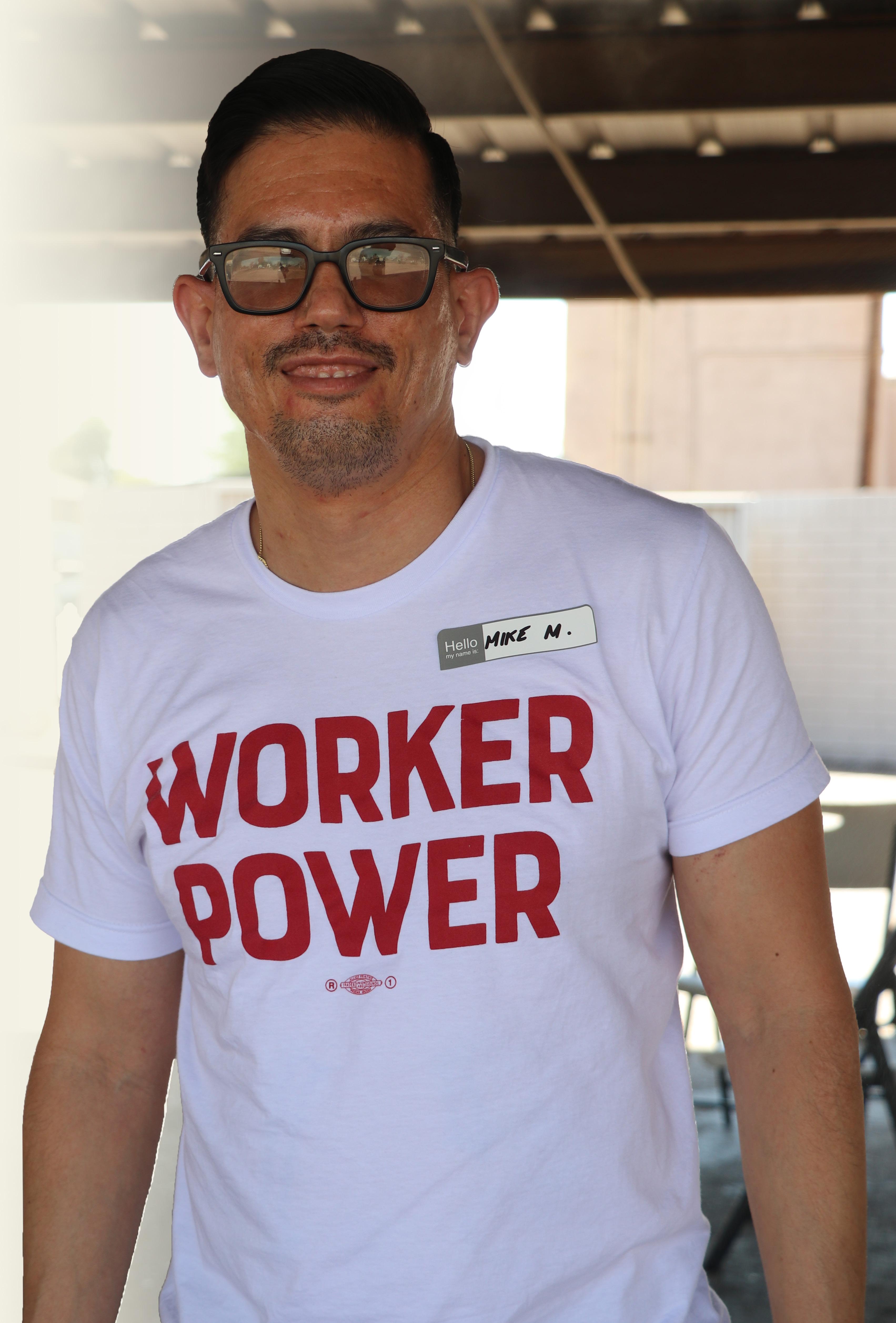
In 2022, Worker Power Institute created the Worker Power Campaign School, a free, month-long in-residence training program dedicated to educating the next generation of organizers who will run strong field campaigns rooted in the best traditions of union organizing and nonviolent direct action.
Our first cohort of fifteen students included a diverse group of candidates with beginner levels of experience in field canvassing and activism. The majority of them were rank-and-file members of the hospitality workers union UNITE HERE. Students participated in classroom trainings on the economics of oppression, the history of racism and civil rights struggle in the United States, and the function
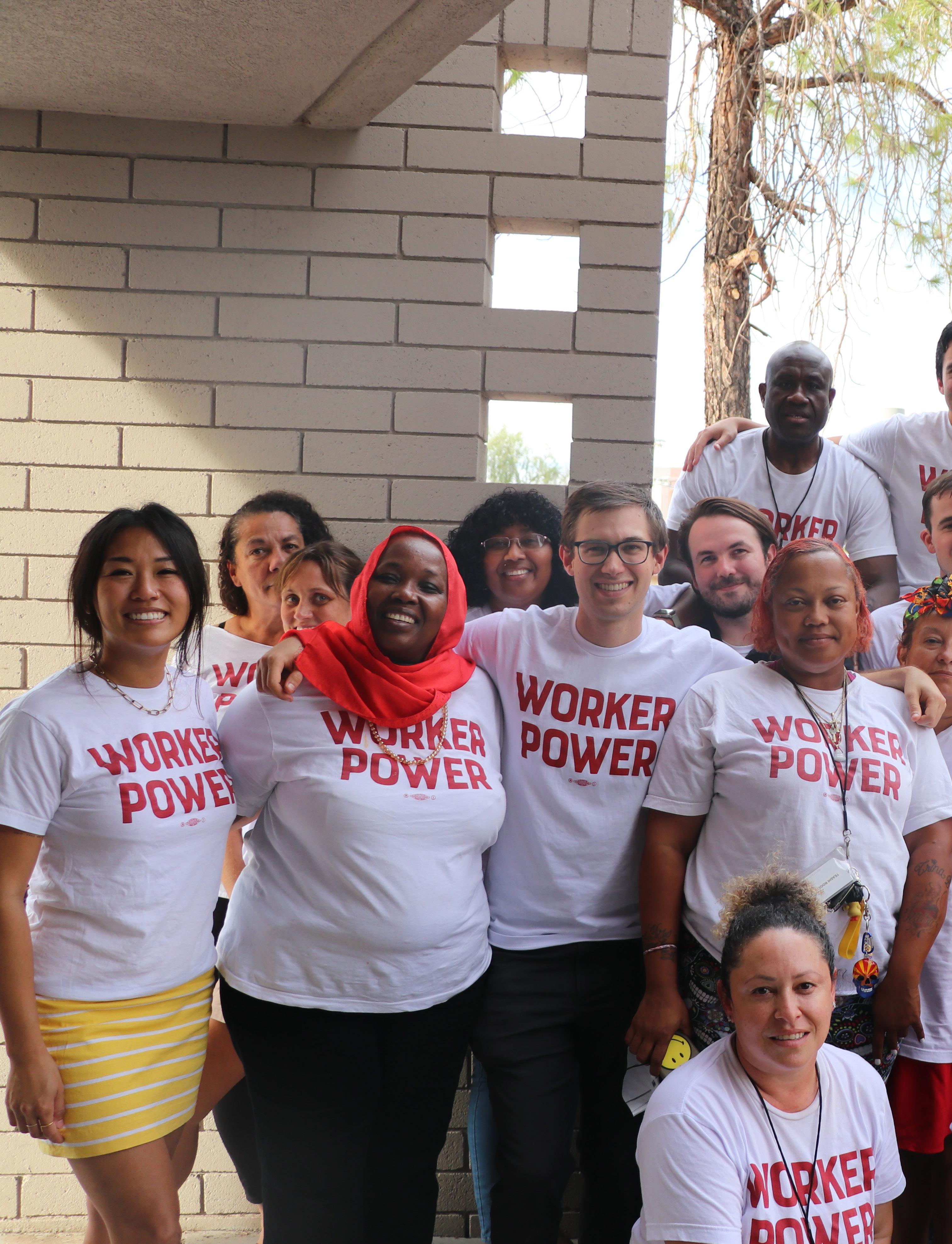
of labor unions in advancing working and living standards for working families in the United States and beyond. Their classroom work was complemented by extensive field canvassing and hands-on mentoring.
The results of Worker Power’s first Campaign School were a resounding success. Every member of the initial Worker Power Campaign School cohort served in a leadership capacity in Worker Power’s voter engagement campaigns in 2022. Six graduated into organizing jobs with Worker Power and partner organizations, and 5 others were union members on leave-of-absence from their hospitality jobs who, having taken a new set of skills back to their workplaces, will be better able to advocate for themselves and their coworkers.
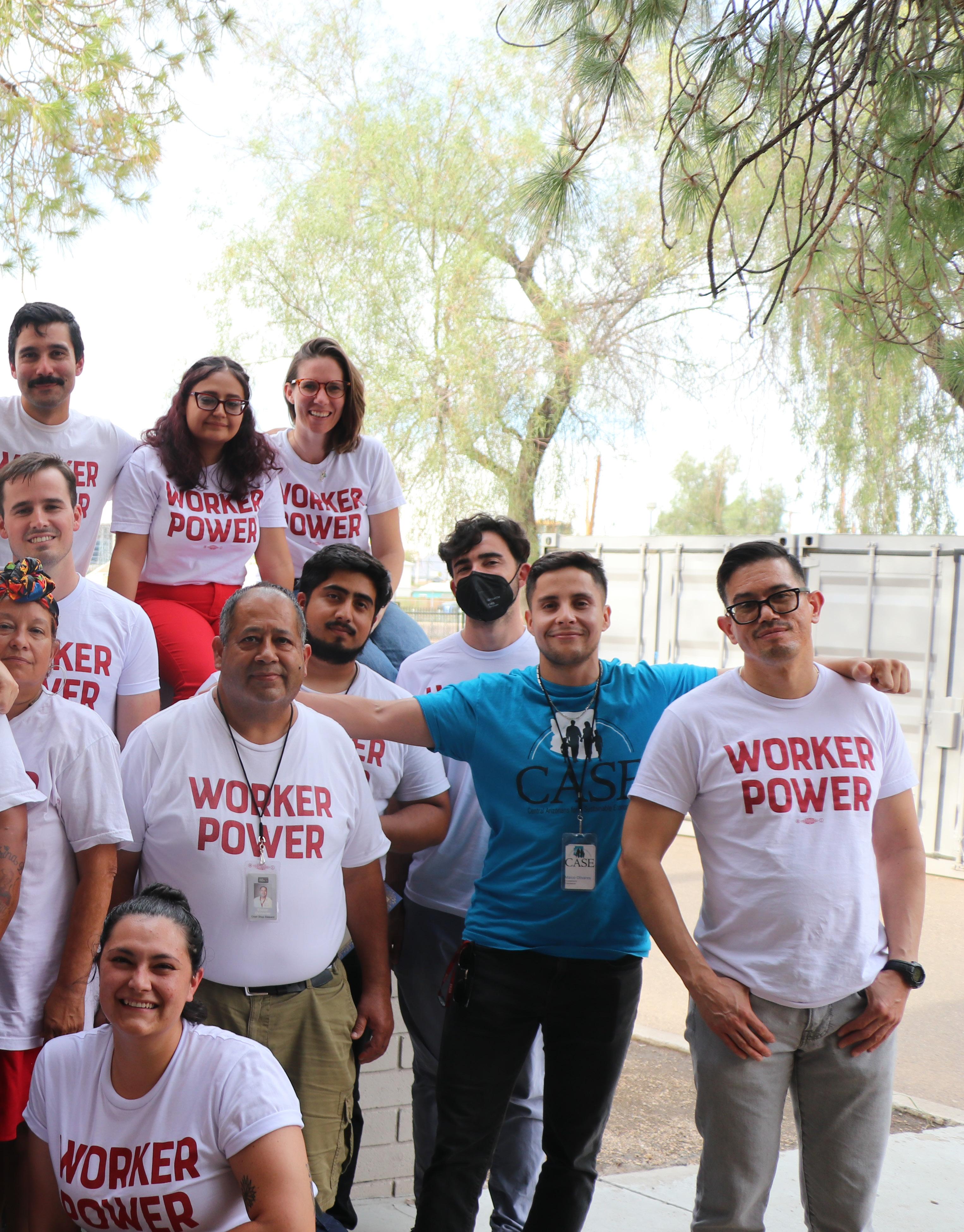

100%

6 graduates were hired as full time organizer & admin staff with Worker Power
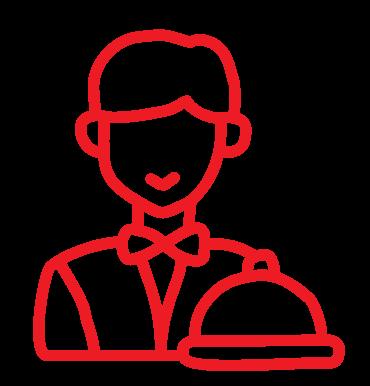


5 graduates are serving as shop leaders with the hospitality workers union Unite HERE Local 11
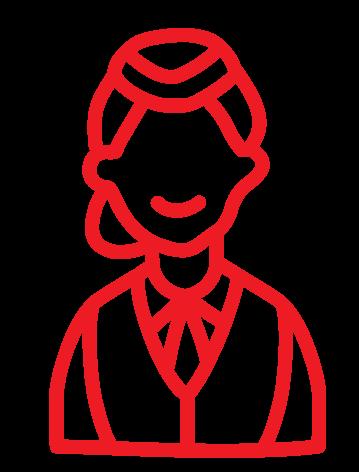
While canvassing Phoenix neighborhoods in 2022, Marilyn Wilbur kept a wet towel around her neck and a bottle of water in her purse. In the nation’s hottest city, the daily temperatures soared over 100 F between May and September, and Marilyn often had to wet her towel to keep cool. Between knocking on the doors, Marilyn occasionally sat in her car, blasting the cool air conditioner in her face. Then she would go back.
When Marilyn could do her work inside a shopping mall or in the shade of colleges such as Arizona State University and Glendale Community College, voter registration was a lot easier. However, during the pandemic, people came out less and kept more to themselves. “2022 was the hardest year to do the voter registration work,” she tells us. Growing voter suppression affecting people of color did not help either.
“It’s no secret that white neighborhoods offer more voting polls options. In addition, since you can no longer vote in person on Sundays in Arizona, Black people have fewer voting options. Historically, Black churches rented buses to drive their Black members to the voting polls. Today, that option is no longer available to many folks who may work six days a week or not have a reliable mode of transportation,” Marilyn said.
Growing up in Holdenville, Oklahoma, Marilyn experienced her share of racism. As a young child, she learned never to cross to the white side of the railroad tracks. But Marilyn did not want to turn away from her community; she wanted to change it. So, she became the first Black female police officer in Holdenville. At 26 she joined the Air Force and was deployed ten times. Three years ago,
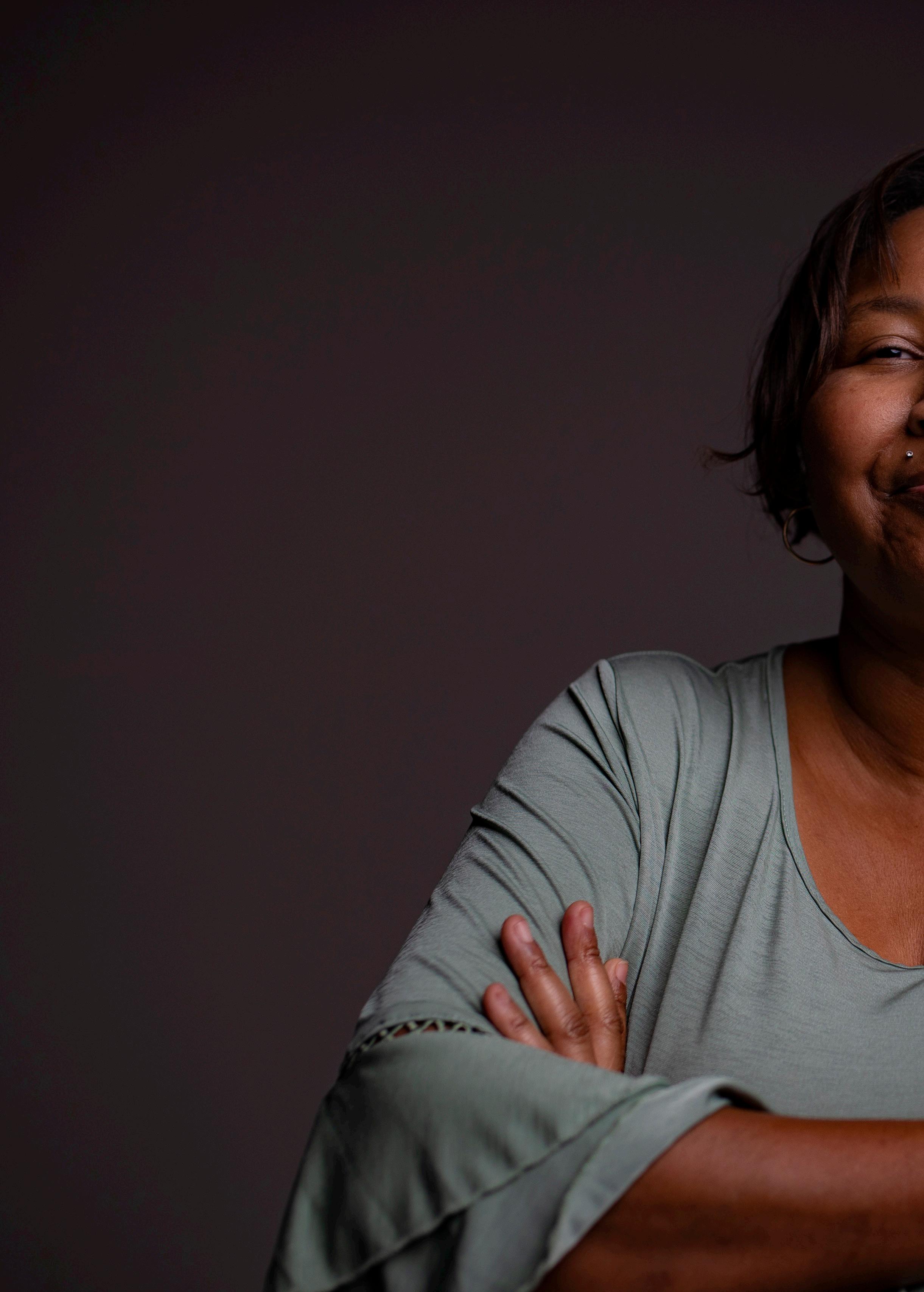
Marilyn joined Worker Power to preserve her country’s democracy through community education, voter registration, and economic policy.
Over the past three years, Marilyn spoke to and educated hundreds of voters about the issues that directly affect them. “I met many people who badly wanted to vote but were unsure how. They were afraid to fill out the ballot wrong. Some didn’t know how to find their polling place. Some didn’t even know they were registered to vote. People of color are often conditioned from birth to think their vote doesn’t matter. But it does, and current elections keep proving this. Arizona’s General Attorney Kris Mayes won the last election by just 280 votes.”
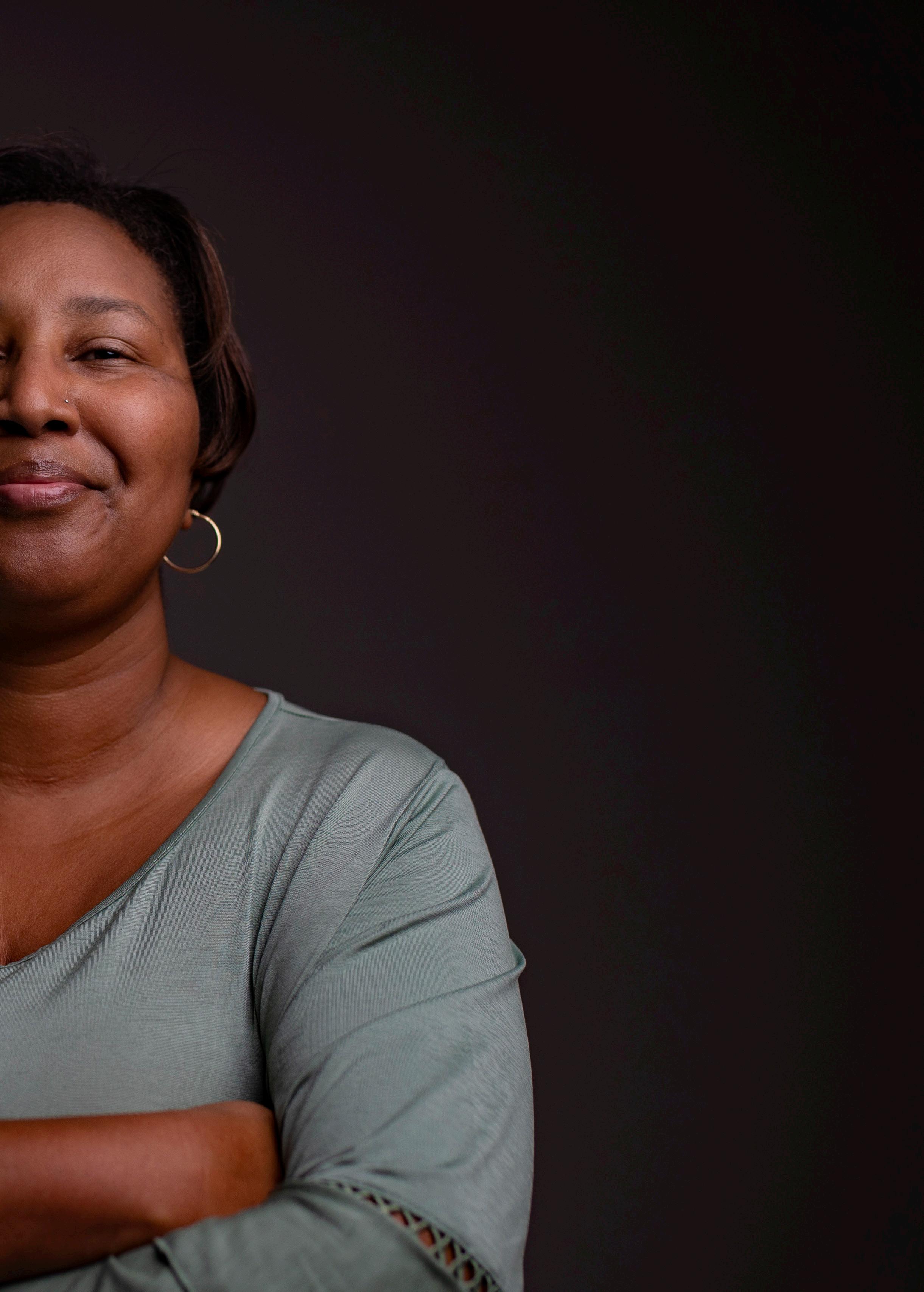
Ever the tenacious advocate for workers’ rights, Marilyn decided to expand her knowledge by attending our Campaign School two years into her service with Worker Power. She wanted to learn how to run strong field campaigns, and this free, month-long in-residence training program dedicated to educating the next generation of organizers fit the bill. Classes included instructions around voter registration, how to build a successful campaign, antilabor politics, current political issues, and day-to-day operations of Worker Power campaigns and field organizers in them.
Following her graduation, Marilyn’s expectations were unmatched. “Attending Campaign School was helpful on so many levels. First, I got better acquainted with the root causes of economic inequality and the history of the civil rights movement. Second, I was surprised to learn how closely they were related to the labor movement. Third, it was great learning more about my colleagues and organizers, their lives, and the work they had done previously. This newly gleaned knowledge helped me put things in perspective and made me realize that all the good fights won in the past were not given to working people; we had to fight to win them.”
Brendan Walsh Executive Director
Jeremy Lasher Senior Field Director
Azra Variscic Development Director
Kort Turner Data Manager
Morningstar Bloom Research and Policy
Sigrid Bantleon Field Organizer
Marilyn Wilbur Field Organizer
Jordan Greenslade Senior Field Director
Maggie Acosta Field Director
Rachele Smith Communications Lead
Chris Stoakes Finance
Jawaher Abbas Field Organizer
Mike Martinez Field Organizer
Cat Castaneda Logistics
Jim McLaughlin Board Member, UFCW Local 99
Betty Guardado Board Member, Phoenix City Council, District 5
Ian Danley Board Member, Former Director of One Arizona and Arizona Wins
Beatriz Topete President, UNITE HERE Local 11 Aubrey Barnwell Treasurer, First New Life Baptist Church